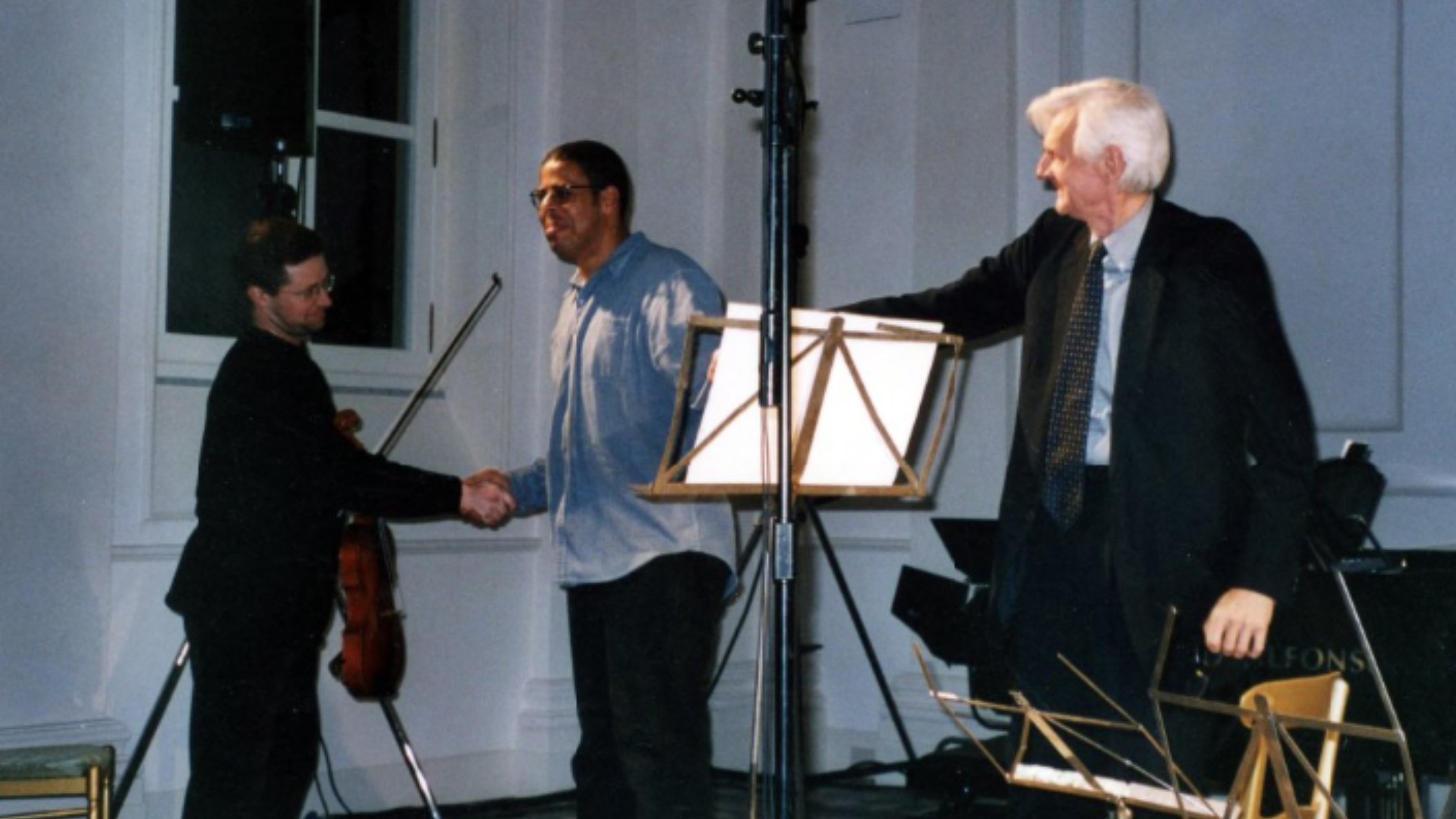
Overview
Music has played an important role at the American Academy in Rome since 1921, when the first Rome Prize Fellowships were awarded in musical composition.
The roster of Academy Fellows and Residents since then has mirrored the development of American music, including such prominent composers as Samuel Barber, Jack Beeson, Martin Bresnick, Elliott Carter, Aaron Copland, David Diamond, John Eaton, Lukas Foss, Alexei Haieff, Howard Hanson, John Harbison, Andrew Imbrie, Betsy Jolas, Ulysses Kay, Barbara Kolb, Salvatore Martirano, George Rochberg, Roger Sessions, Harold Shapero, Randall Thompson, Charles Wuorinen, Yehudi Wyner, and Ellen Taafe Zwilich, as well as many younger composers active today.
The formation of a music program at the American Academy in Rome was suggested as early as 1905 by the composer Edward MacDowell, one of the Academy’s original trustees, who hoped that “... the Arts of Architecture, Painting, Sculpture, and Music should come into such close contact that each and all should gain from this mutual companionship.” MacDowell’s proposal was brought to fruition only after the end of the First World War, when musical composition was added to the fields covered by the Arts at the Academy. One of the most vigorous proponents of the new music program at the Academy was the organist Felix Lamond, who became the first Professor of Music in Rome. In 1921, the Academy awarded the first Rome Prize in Musical Composition to Leo Sowerby, who was followed shortly thereafter by Howard Hanson and Randall Thompson. The first Residencies in musical composition, awarded to more senior composers, began in 1947 with awards to Samuel Barber and Douglas Stuart Moore.
Two annual Rome Prize Fellowships in musical composition are currently offered—the Frederic A. Juilliard/Walter Damrosch Rome Prize and the Samuel Barber Rome Prize—and an annual residency (the Paul Fromm Composer in Residence). Composers also participate in the Visiting Artists and Scholars Program. In addition, the Rome Prize Fellowships in ancient studies and in Renaissance and early modern studies have supported the work of musicologists at the Academy. The Library contains musical scores by Academy composers and other American musicians, as well as a collection of books on music, including the personal library of Prof. W. Oliver Strunk (1901–1980), author of Source Readings in Music History and an expert on Byzantine music. A list of uncatalogued music scores in the Library can be found below.
For a fuller discussion of the history of the Rome Prize in music composition, consider Music and Musical Composition at the American Academy in Rome, edited by Martin Brody (Rochester, NY: University of Rochester Press, 2014), which includes Richard Trythall’s “A History of the Rome Prize in Music Composition, 1947–2006.”
Concert Program
The Academy’s active concert program has long brought contemporary American classical music to Italian and American listeners. In the 1920s, the work of Academy composers was performed by the Augusteo, Rome’s major orchestra, through the good auspices of the composer Ottorino Respighi. In 1934, when Samuel Barber won the Rome Prize in musical composition, NBC broadcast the announcement across the United States with a performance of one of Barber's own works. In 1950–51 the Academy began a long and fruitful relationship with the Radio Televisione Italiana Orchestra, locally known as Rome’s RAI Orchestra. By the 1960s, RAI began regularly taping and broadcasting American music, and eventually over eighty works were heard by an international audience—over half of these compositions in first performance. The RAI series was also broadcast by WFLN in Philadelphia and over its associated stations throughout the US in the mid-1980s.
Each composer at the Academy has a personal studio, equipped with a grand piano. The Library also contains CDs and a unique historical collection of recordings of Academy concerts from the early 1950s to the present. With the help of the Gladys Krieble Delmas Foundation, the concert recordings were digitized in 2003 and cataloged in the Library’s catalog.
2004 Fellows Spring Concert
Listen to the following recordings from the Fellows Spring Concert, May 29, 2004, Cryptoporticus.
“String Band” (excerpt)
Composer: Mason Bates, AAR Fellow in Musical Composition, 2003–4
Performers: “The Claremont Trio,” Emily Bruskin, violin; Julia Bruskin, cello; Donna Kwong, piano
“eight songs” (excerpt)
Composers: Crom-Tech/Jefferson Friedman, AAR Fellow in Musical Composition, 2003–4
Performers: “The Yesaroun’ Duo,” Samuel Z. Solomon, drum set and voice; Eric Hewitt, baritone saxophone
2003 Fellows Spring Concert
The following recordings are from the Fellows Concert, June 4, 2003, Sala Aurelia:
“String Quartet No. 1, 1st movement: With anticipation: energetically”
Composer: Mark Kilstofte, AAR Fellow in Musical Composition, 2002–3
Performers: “Bernini String Quartet”
“Sonata for Saxophone and Piano, 2nd Movement: Recitative”
Composer: Mark Kilstofte, AAR Fellow in Musical Composition, 2002–3
Performers: “Ambassador Duo,” Clifford L. Leaman, saxophone; Derek J. Parsons, piano
“Una Notte all’Opera” (“A Night at the Opera”)
Composer: David Sanford, AAR Fellow in Musical Composition, 2002–3
Performers: “Corvini and Iodice - Roma Jazz Ensemble”
Conductor: David Sanford